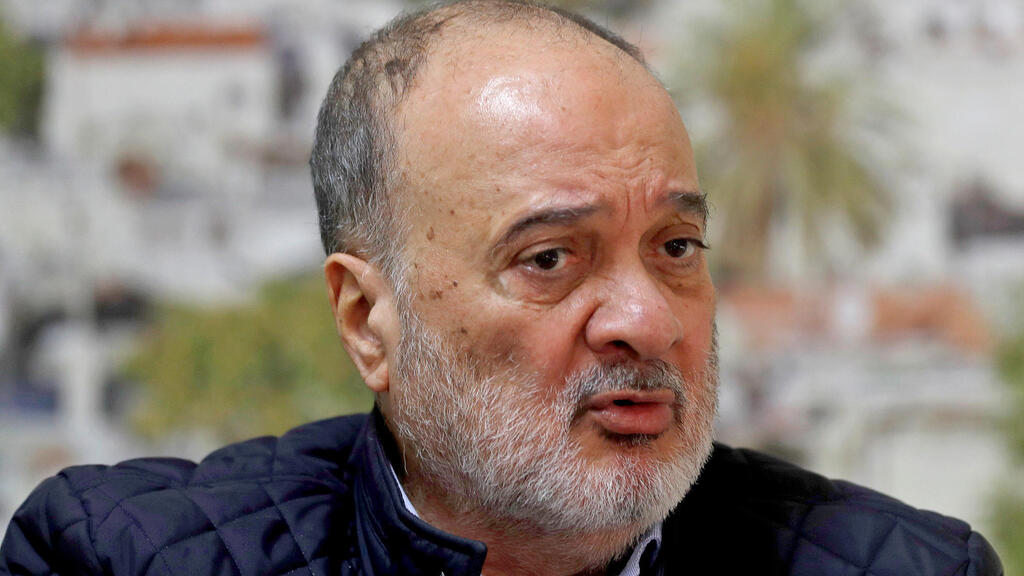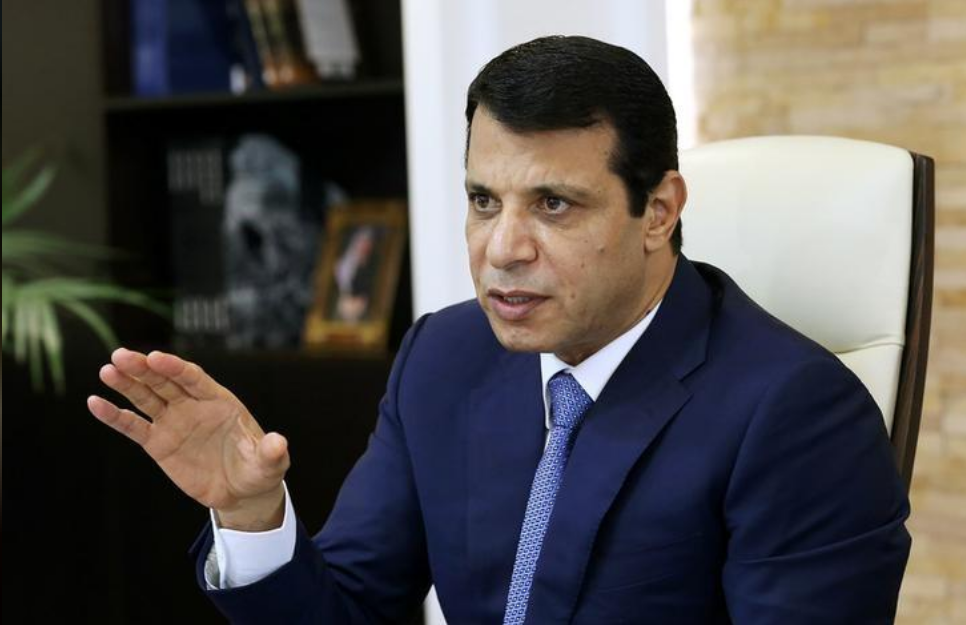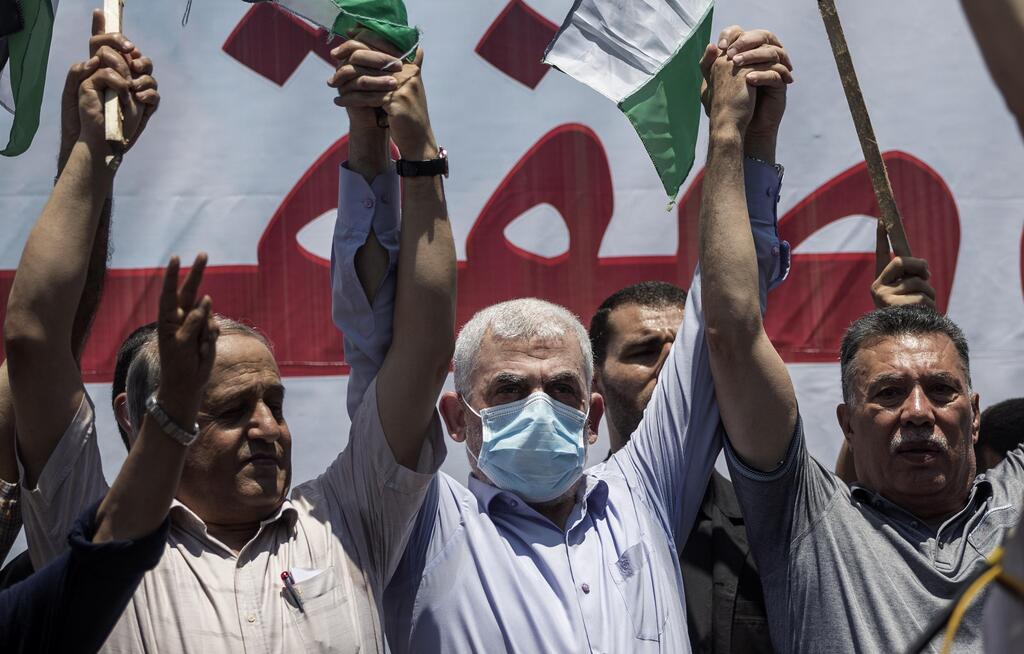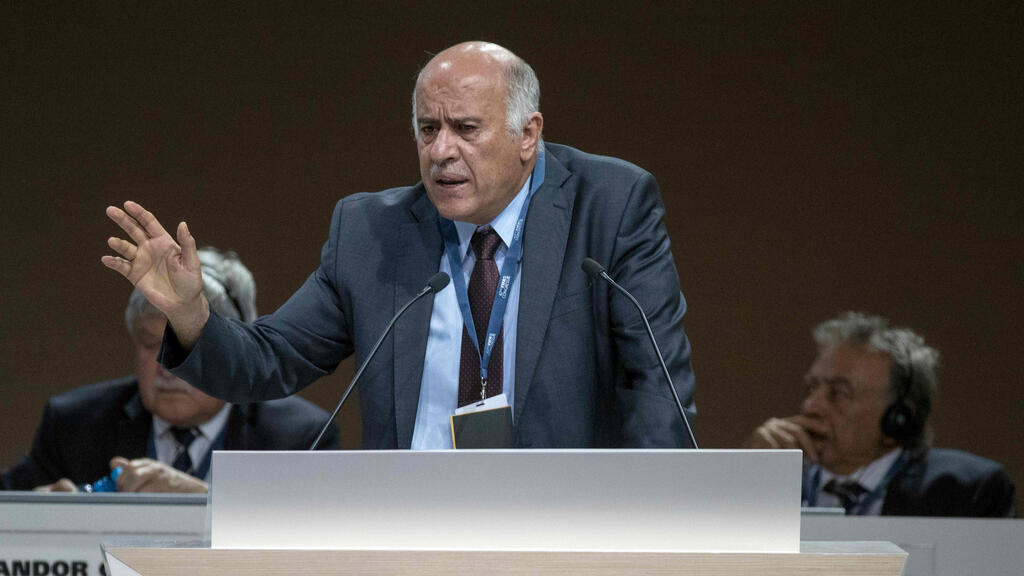Getting your Trinity Audio player ready...
"History repeats itself. First as tragedy and then as a farce," the old saying goes, which seems to describe the course of events in the Palestinian Authority to a tee.
Despite all the warnings, past experience and a myriad of red flags, Palestinian President Mahmoud Abbas' Fatah arrives in the money time of the Palestinian legislative election broken, divided and ridden with infighting.
6 View gallery
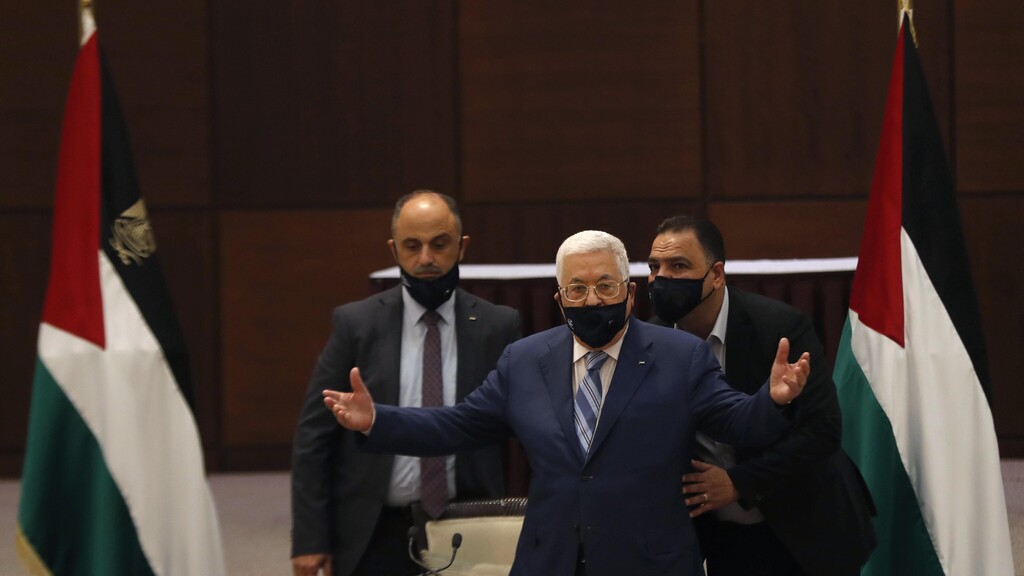

President Mahmoud Abbas gestures during a meeting with the Palestinian leadership
(Photo: EPA)
Meanwhile, Fatah’s political rival, the terrorist organization Hamas, is heading into elections united, strong and itching for a fight.
Thirty-six parties have submitted their list for the upcoming election before the final deadline. While Hamas is running as one united list, Fatah split into three bickering parties: The main list led by Abbas, another led by Marwan Barghouti — who is currently serving 5 life sentences in Israeli prison — and ousted Fatah member Nasser al-Qudwa, and a third list led by the president's exiled arch-rival Mohammed Dahlan.
And while Barghouti and Dahlan themselves are not running for parliament, they did create the lists and picked their own candidates to serve as their proxies.
Another public figure that will be featured in the upcoming elections and whose run might further weaken Fatah is former Palestinian prime minister Salam Fayyad who hopes to lure some of Fatah's potential voters to his side.
Now that the technical phase is in the books, the Palestinian Central Elections Commission (CEC) has to either approve or bar the lists if they do not meet its conditions. The conditions, as usual, are very arbitrary which is why the CEC can always kick to the curb lists that do not strike its fancy for seemingly no reason.
It is safe to say that in case that all of the aforementioned factions end up surviving the vetting process, the divide between them will hand Hamas the ideal conditions to win the parliamentary elections and gain a majority of its seats — not unlike the 2006 elections in which the terrorist group won 74 of the Palestinian Legislative Council's 132 seats.
Everyone following about has been going on on the group knows that Abbas is in a pickle.
Dahlan is fast gaining influence in the Gaza Strip thanks to the tens of thousands of COVID vaccines he managed to bring in with the aid of his patron in the United Arab Emirates, added to his devoted supporter base in West Bank refugee camps and East Jerusalem.
Barghouti regularly enjoys massive public support in Palestinian public opinion polls. Not to mention that if his faction succeeds in the parliamentary elections, it will become the springboard he need to fulfill his one true dream — running for the Palestinian presidency.
Fayyad is not only seen as an incorruptible figure, his supporters, the majority of whom hail from Nablus and Tulkarm, remember him as the one who pushed for the establishment of state institutions in the Palestinian Authority at the beginning of the previous decade.
Hamas, on the other hand, is presenting a strong, united front and is using several factors for its benefit.
The terror group reserved a third of the spots on its list for women, hoping to harness the electoral might of the female vote.
Another ace in Hamas’ pocket is the religious population. Since the majority of worshippers at the masques have an affinity and sympathy for the terrorist group, Hamas can easily mobilize them to the polls after prayer.
And since the elections will take place at the end of the month of Ramadhan — during which groups in the population that do not routinely pray tend to attend masques — Hamas can use this opportunity to propagate its ideals with those who do not regularly associate with the group or its followers.
The heads of Fatah’s militant Tanzim faction, who are scattered in various districts, recognize the dangers entailed in these circumstances.
They recently sent an official letter to Abbas where they both warned him of Fatah's imminent loss in the polls and suggested he put a stop to the elections. Abbas, on his part, chose to ignore them completely.
It seems as though Abbas is knowingly headed towards a disaster. Palestinian sources believe that what motivates him is his own legacy. Abbas is 85 and is nearing the end of his political career, the divide between Hamas and Fatah, as well as between the Gaza Strip and the West Bank, happened on his watch. The same sources believe that Abbas wants to be remembered as the one who also brought about reunification.
Currently, three men have Abbas’ ear, but according to several sources, they are of little help. The first is Hussein a-Sheikh, the second is Majed Faraj and the third is Jibril Rajoub.
6 View gallery
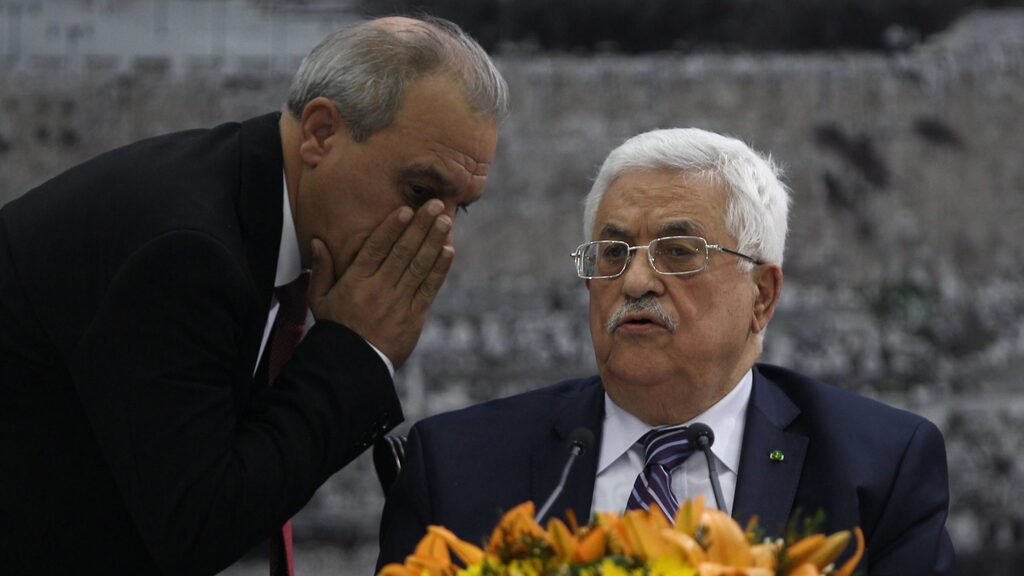

Majid Faraj whispers to Palestinian President Mahmoud Abbas during a meeting in Ramallah, April 2014
(Photo: AFP)
According to these same sources, neither a-Sheikh nor Faraj believes Fatah can win the elections but are too afraid to tell Abbas their true opinion. Rajoub, meanwhile, is driven by his desire to be Abbas’ heir, and therefore pushes for the election to take place. Rajoub also has ties with Hamas, which he hopes will aid him in reaching an agreement with the terror group on the day he’ll finally inherit Abbas’ sit.
This precarious political situation has not gone unnoticed and has naturally become a source of concern for Israel.
The outgoing Coordinator of Government Activities in the Territories (COGAT), Major General Kamil Abu Rukun, has warned a considerable number of foreign ambassadors that Israel will not accept a Hamas victory in the elections, and will go so far as to sever ties with the Palestinian Authority if the Islamist movement emerges victorious. Not unlike the total relations blackout between Jerusalem and the PA after the 2006 elections.
Hope is not lost though, there are a few things that can be done to avoid such a scenario. The United States can pressure Abbas to delay, or even call off the elections.
Abbas, on his part, can rely on various excuses to justify such a move. He can claim he has decided to call off the elections since Israel has not given (and won't give) its consent to include East Jerusalem in the elections. In fact, some protesters have already called on Abbas to cancel the elections as long as East Jerusalem is excluded.
Abbas can also reason that due to high coronavirus morbidity in the West Bank and the Gaza Strip, the elections must be postponed until the Palestinians will have managed to get the outbreak under control.
Israel, meanwhile, can choose the stick and disrupt the elections by preventing movement between the different Palestinian territories, or by banning foreign observers from reaching the polls. Israel can also opt for the carrot and instead offer Abbas a political tribute in exchange for stopping the election.
In any case, Jerusalem must prepare for a scenario in which Hamas gains the upper hand. Such a victory may not be accepted even within Palestinian society which will lead to destabilization of the West Bank and Gaza Strip.
Because as we know — a fire within Palestinian society has a way of scorching Israel.


